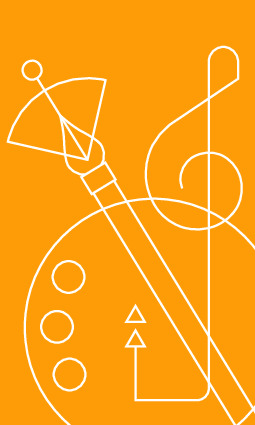|
|
|
| Module code: MAKM-312 |
|
|
4SU (4 hours per week) |
|
6 |
| Semester: 3 |
| Mandatory course: no |
Language of instruction:
German |
Assessment:
Written composition, presentation
[updated 24.09.2020]
|
Exam recurrence:
The information regarding exam recurrence is found within the exam policy of the study programme (ASPO).
|
MAKM-312 (P430-0040) Cultural Management, Master, ASPO 01.04.2020
, semester 3, optional course
|
60 class hours (= 45 clock hours) over a 15-week period.
The total student study time is 180 hours (equivalent to 6 ECTS credits).
There are therefore 135 hours available for class preparation and follow-up work and exam preparation.
|
Recommended prerequisites (modules):
None.
|
Recommended as prerequisite for:
|
Module coordinator:
Prof. Dr. Achim Schröder |
Lecturer:
Dozierende des Studiengangs
[updated 25.10.2018]
|
Learning outcomes:
After successfully completing this module, students will:
_ be able to assess geographical and cultural factors (i.e. location, facilities, infrastructures, special attractions, tec.) and critically analyze their potential for use in culture, leisure, sport and tourism,
_ be able to illustrate the importance of geographical differences in nature, society and culture as driving forces in tourism, especially cultural tourism, and take them into account in management strategies,
_ be able to apply knowledge and methods from cultural geography, as well as leisure and tourism geography in their own projects, document the main results and present them to the group (as well as to external persons if necessary).
[updated 24.09.2020]
|
Module content:
_ Geographical basics and their significance for culture and leisure, sport and
tourism
o Geographical tools
o Processes and structures of the Earth´s crust (plate tectonics)
o Atmospheric events (climate and climate change)
o The Earth´s landscapes
_ Looking at and understanding cultural history
o Urban development and types of cities
o Genesis of the cultural landscape
o European and Mediterranean cultural regions
_ Tourism in different cultural areas and ecological zones of the Earth: potentials, inhibiting factors and management strategies
[updated 24.09.2020]
|
Teaching methods/Media:
_ Seminaristic lecture course
_ Case studies (where appropriate, study trip)
_ Group and project work (concept development and presentation)
_ Discussions with fellow students and third parties
_ Presentations and preparation of documentation/papers
[updated 24.09.2020]
|
Recommended or required reading:
_ Becker, Chr.; Hopfinger, H.; Steinecke, A. (Hrsg.): Geographie der Freizeit und des Tourismus. Bilanz und Ausblick, 3. Auflage, Oldenbourg, München, Wien, 2007.
_ Boniface; Cooper: Worldwide Destinations Casebook: The Geography of Travel and Tourism, 2009
_ Boniface; Cooper: Worldwide Destinations: The Geography of Travel and Tourism, 2009
_ Gebhardt, H., Glaser, R., Radtke, U., Reuber, P., Geographie. Physische Geographie und Humangeographie, Spektrum Akademischer Verlag, latest edition
_ Haggett, P.: Geographie. Eine globale Synthese. Eugen Ulmer, 2004
_ Heineberg, H. (2017): Stadtgeographie. UTB, latest edition
_ Heineberg, H.: Einführung in die Anthropogeographie, Humangeographie, Schöningh, Paderborn, latest edition
_ Institut für Länderkunde (Hrsg.) Nationalatlas Bundesrepublik Deutschland. Verschiedene Bände, Spektrum Akademischer Verlag, Heidelberg, Berlin, versch. Jahrgänge
_ Kiesow, G. Kulturgeschichte sehen lernen (Band 1-5), Deutsche Stiftung Denkmalschutz, latest edition
_ Knox, P. L.; Marston, S. A.: Humangeographie, Spektrum Akademischer Verlag, Heidelberg, latest edition
_ Schultz, J. (2016): Die Ökozonen der Erde. UTB, latest edition
[updated 24.09.2020]
|


